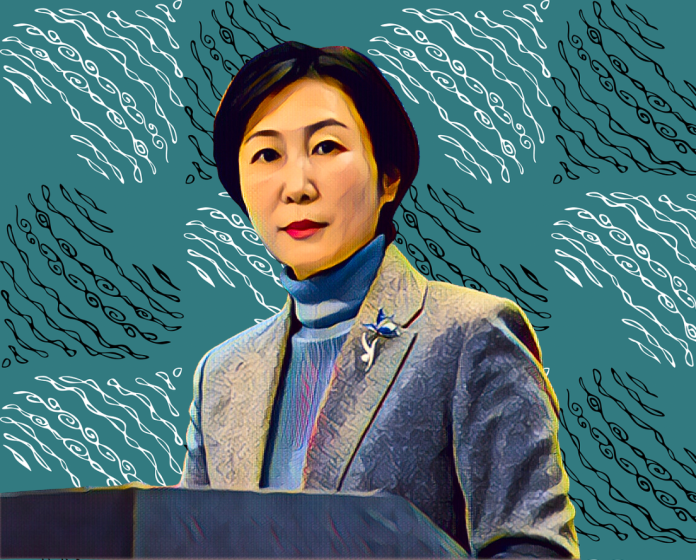KEY POINTS
-
China rejects US threat to Nigeria, calling it external interference.
-
ECOWAS, lawmakers, and Nigerian officials dismiss genocide claims.
-
Nigeria gains global diplomatic support amid Trump’s warning.
China has openly rejected the United States’ threat to take military action against Nigeria, warning Washington to stay out of the West African nation’s internal affairs.
The rebuke came after former U.S. President Donald Trump threatened to launch military strikes on Nigeria, citing alleged genocide against Christians in the country.
The Chinese government’s position came as the Nigerian government said religious extremists were spreading false claims of Christian persecution to divide the country. The Senate also said it would engage the executive arm of government for a coordinated response to the threat.
Stakeholders, including the Christian Association of Nigeria (CAN) in the northern states, the Southern and Middle Belt Leaders Forum (SMBLF), and the Nigerian Christian Pilgrim Commission (NCPC), also urged unity against what they described as an external provocation.
Chinese Foreign Ministry spokesperson Mao Ning said China stood by Nigeria as a “comprehensive strategic partner,” affirming its right to pursue its own development path in line with national realities.
“As a comprehensive strategic partner of Nigeria, China firmly supports the Nigerian government in leading its people on a development path that fits Nigeria’s national realities,” Mao said in a statement published on the ministry’s website.
“We oppose any country’s interference in other countries’ internal affairs under the pretext of religion and human rights. We oppose the wanton threat of sanctions and the use of force,” she added.
Mao’s statement followed Trump’s designation of Nigeria as a “country of particular concern,” with warnings of aid suspension and possible military intervention if the government “continues to condone the killing of Christians.”
US lawmakers, ECOWAS and Nigeria reject Trump’s remarks
Trump’s threat sparked widespread condemnation across the United States and Africa. U.S. lawmakers Gregory Meeks and Sara Jacobs described the comments as “irresponsible and reckless,” arguing that the former president’s claims distorted the complex realities of violence in Nigeria.
“The Trump administration’s designation of Nigeria as a Country of Particular Concern ignores the complex reality of violence there,” they said in a joint statement. “Clashes between farmers and herders are driven by resource scarcity and land competition, not religion alone.”
The lawmakers also warned that Trump’s threats risked embroiling the United States “in another needless war,” adding that cutting aid to Nigeria would undermine humanitarian and development efforts already underway.
The Federal Government reiterated that claims of Christian genocide were false, insisting extremists were promoting such narratives to destabilize the nation.
Minister of Information and National Orientation, Mohammed Idris, said President Bola Tinubu remained calm and committed to dialogue with international partners to clarify Nigeria’s security efforts.
“President Tinubu will continue to engage not only with the U.S. but also with regional and continental bodies to counter false narratives that damage the country’s reputation,” Idris said.
He emphasised that Nigeria’s constitution guarantees freedom of religion for all faiths and that “extremists who seek division must not be allowed to succeed.”
Senate President Godswill Akpabio also said the chamber would take up Trump’s remarks with the executive, describing the matter as a foreign policy concern requiring a unified national response.
Akpabio noted that Trump’s comments were based on outdated reports from 2010 and failed to reflect Nigeria’s current realities. “Insecurity affects both Christians and Muslims,” he said. “Nigeria’s diversity should be our strength, not our division.”
Regional voices rally behind Nigeria’s sovereignty
Former Chief of Army Staff and ex-Minister of Interior, Lt. Gen. Abdulrahman Dambazau (retd.), said the United States’ military threat served no interest of Nigerians, arguing Washington was only pursuing its own strategic objectives.
“Whatever the U.S. wants to do in Nigeria can never benefit anybody because Americans protect only their interests,” Dambazau said, alleging that the U.S. might be seeking a new military base in the country.
The Economic Community of West African States (ECOWAS) also rejected Trump’s genocide claim, warning that such allegations could deepen insecurity and division in the region.
In a communiqué, the bloc said terrorist attacks in the region have indiscriminately targeted Muslims, Christians, and others.
“ECOWAS strongly rejects these false and dangerous claims that seek to deepen insecurity in communities and weaken social cohesion,” the statement said.
CAN asked for unity amongst christians and muslims
The Christian Association of Nigeria in the 19 Northern states and Abuja, however, urged both Christians and Muslims to treat Trump’s statement as a call for unity and peace.
Chairman Rev. John Hayab said Trump’s remarks should be “an opportunity for all Nigerians to demand concrete government action to end killings and intolerance.”
Similarly, the Southern and Middle Belt Leaders Forum (SMBLF) rejected any foreign military intervention, describing Trump’s threat as “unsolicited and unacceptable.”
In a communique jointly signed by its leaders, the group said: “We oppose any foreign military action but see this as a wake-up call for government to halt ongoing mayhem and restore occupied lands to rightful owners.”
Bishop Stephen Adegbite, Executive Secretary of the Nigerian Christian Pilgrim Commission, also said Nigeria needed “partnership, intelligence sharing, and counterterrorism support, not threats of invasion.”
He cited data showing that between 2020 and 2025, over 20,000 civilians both Christians and Muslims had been killed in conflicts, proving the crisis was not religious but national.
Former Nigerian deputy ambassador to the U.S., Hassan Mohammed, said Trump’s threats violated the spirit of the International Freedom of Religion Act, which promotes accountability but not warfare. “Threatening to punish Nigeria through war or invasion has never happened before,” he said.



